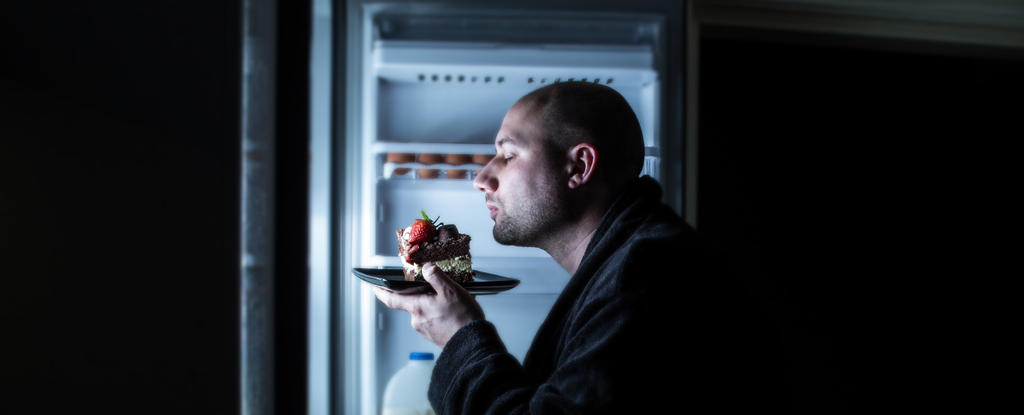A study suggests eating later in the day can directly impact our biological weight regulation in three key ways: through the number of calories that we burn; our hunger levels; and the way our bodies store fat.
With obesity now affecting hundreds of millions of people worldwide, this is a valuable insight into how the risk of becoming obese could be lowered in a relatively simple way – just by eating our meals a few hours earlier.
Earlier studies had already identified a link between the timing of meals and weight gain, but here the researchers wanted to look at that link more closely, as well as teasing out the biological reasons behind it.
“We wanted to test the mechanisms that may explain why late eating increases obesity risk,” said neuroscientist Frank Scheer, from Brigham and Women’s Hospital in Boston in 2022 when the study was published.



Hmmm ……a study of 16 obese people in a controlled environment. I am not persuaded.
Most of the scientific community understand this to be a myth :
https://digitalcommons.wayne.edu/cgi/viewcontent.cgi?article=1273&=&context=pat_edu_proj&=&sei-redir=1&referer=https%253A%252F%252Fscholar.google.com%252Fscholar%253Fhl%253Den%2526as_sdt%253D0%25252C5%2526q%253Deating%252Blate%252Bat%252Bnight%252Bmyth%2526btnG%253D#search="eating late night myth"
A calorie is a calorie, no matter what time it is consumed .
Your linked study handout doesn’t support your claim that “a calorie is a calorie, no matter what time it is consumed.” Care to provide something that illustrates most of the scientific community is behind this?
I am especially curious about the study, called out in your handout, that showed night eating led to weight gain for a specific population. That would seem to suggest there’s more at play than just caloric value, no?
The citations are at the bottom.
I read the citations. They don’t support your argument. That’s why I commented.
How did you interpret this bit :
CONCLUSION: Night eating was not associated with later weight gain, except among already obese women, suggesting that getting up at night to eat may be a contributor to further weight gain among the obese
deleted by creator
IDK, AFAIK that’s not exactly true. E.g. our gut bacteria play a big role in our health, including digestion. Gut bacteria are living organisms themselves and consume food we eat while it’s still in our stomachs. I’ve read that different kinds of foods, depending how easy it is for the bacteria to consume, may introduce more or less calories to us since the bacteria might digest some things before it gets past our stomach.
From what I’ve read, this is already influenced by the state of food, like how much it’s been processed, but maybe it’s based on time too. If the bacteria already ate an hour or two ago then maybe they wouldn’t absorb as much when you have a snack later.
Or maybe, when the bacteria have just eaten, they have also just divided and can digest twice as much.
I don’t think we can simply say for certain that a calorie is a calorie no matter when its consumed.
Although evidence is still limited, there are indicators that eating earlier in the day leads to less weightgain.
Source
My blatantly unscientific quick rationale: if you’re catching your prey late in the day, it was a tough hunt or food might be scarce, better hang on to those calories tightly.
In a slightly more scientific angle, I wonder if it could have to do with changes in digestion processes when sleeping.
I read about this a while ago so my memory is fuzzy on the details; I think the circadian rhythm was a key factor in this.